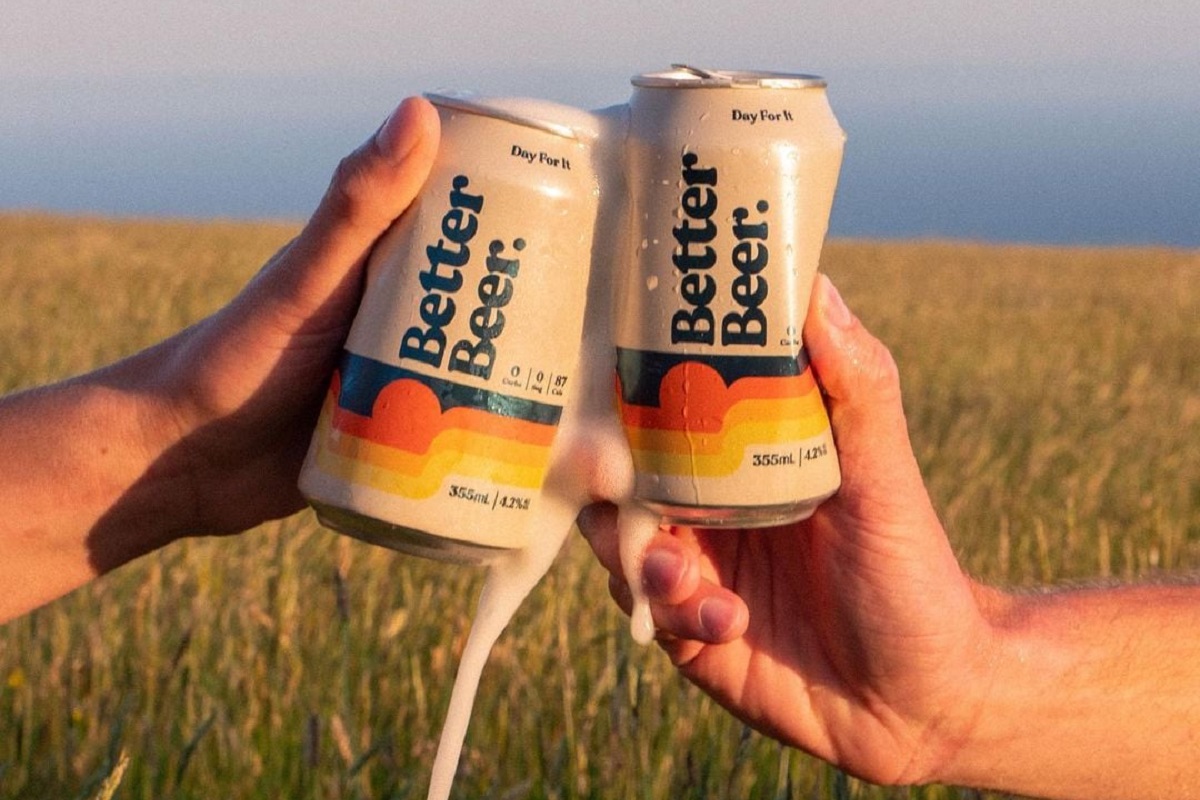Federal Court Justice Angus Stewart has dismisses Brick Lane Brewing’s lawsuit against Torquay Beverage Company and its Better Beer brand and design.
Brick Lane had claimed that Better Beer had engaged in misleading and deceptive conduct around the design of its cans, which Brick Lane claimed was too similar to its own Sidewinder Hazy Pale cans meaning consumers could think the two products were related.
In dismissing the proceedings, Federal Court Justice Angus Stewart said: “Sidewinder brand was announced publicly about five days before the respondents’ Better Beer brand, and although the get-up used for each has many similar features, each was developed independently of the other.
“The first Sidewinder product was available for sale to consumers nearly three months before the first Better Beer product. The products essentially built their reputations in the market side by side. For the reasons that follow, I have concluded that despite the applicant having got its get-up and product into the market first, its claim fails.”
Brick Lane had started legal proceedings against Torquay Beverage Co (TBC), the owners of Better Beer claiming that TBC’s conduct in packaging and promoting its Better Beer lager and ginger beer products would cause consumers to make errors in the choices.
The claim said that consumers were capable of mistaking Better Beer products for those in the Sidewinder range or vice versa or thinking that Better Beer would be a low or no alcohol product.
Brick Lane also said that Better Beer had falsely, misleadingly or deceptively represented to consumers that Better Beer is Sidewinder, that they had the same manufacturer and that the products had the same endorsements and sponsorships.
In his consideration of Brick Lane’s case, Justice Stewart said that when consumers a considering possible beer purchases they are “faced with an extraordinary array of beer products that vary in many different respects”. He highlighted the many different segments within the beer category, which “shows that it would be wrong to consider this case on the basis of identifying a hypothetical consumer in only one segment of the market. A broader approach is necessary”.
Justice Stewart also highlighted that while Sidewinder had it the market first, it was actually only a few days ahead of Better Beer’s launch in July 2021, and so: “The happenstance of Brick Lane having won the race – a race that neither it nor the respondents knew that they were in – by only a few days does not give it the right to stop the respondents from using their get-up or to claim damages. That is because in the intervening period Brick Lane had not established any appreciable reputation for its get-up. Without that, its claim must fail.”
He also stated that because of the different segments within beer, consumers are more likely to take care over their purchases.
“Given the plethora of different types and styles of beer in the Australian market, and there being no evidence that they are consistently categorised and grouped in their presentation to consumers, whether online or in retail outlets, the point is easily overstated. It is precisely because of the huge variety in beers and the way in which they are presented that the hypothetical reasonable beer purchaser is likely to have to pay close attention to just what it is that they are taking off the shelf, or clicking on, to ensure that they get what they want. There’s a lot to choose from, and a lot to look out for.
“A consumer wanting a low alcohol beer will be disappointed to find that they had erroneously bought a low carbohydrate full strength alcohol beer, and vice versa. Someone wanting a lager or a pilsner will be disappointed if they erroneously walk out with a pale ale, and so on.”
He added: “The short point is that the hypothetical reasonable consumer of beer must be taken to take reasonable care of their own interests. That includes paying enough attention to what they are buying in a crowded and bewildering market so as to be able to distinguish between low alcohol and low carbohydrate products and to notice the names of the relevant products.
“I do not see that consumer fleetingly taking something from the shelf, or clicking on an icon, because of some similarity of colouring and design that they might remember from a previous purchase. That is particularly so in the present case given the distinctly different names and the clarity of the statements on the packaging as to the different nature of the products, ie, low alcohol and low carbohydrate.
“I am not satisfied that the hypothetical reasonable consumer of beer would at the relevant date have had any particular familiarity with Brick Lane’s Sidewinder get-up, but even if they did, they would not have been likely to be misled by the similarity of the respondents’ Better Beer get-up to the Sidewinder get-up into thinking that the products were in some way associated.
“As explained, that arises in particular from the distinctive names used for the different products as well as the differences between the get-ups and the features of the relevant market.”
Torquay Beverage Co’s Nick Cogger welcomed Justice Stewart’s ruling as “a win for common sense”.
He added: “We are happy that we can put this inconvenience behind us and that we can continue to develop the Better Beer brand.
“We will pursue our entitlement to seek costs from Brick Lane.
“We would like to thank our wonderful legal team – George O’Farrell and her team at By George Legal and our excellent counsel, Ed Heerey KC and Marcus Fleming.”
Brick Lane’s Managing Director Paul Bowker told The Shout he had no comment on the case.

